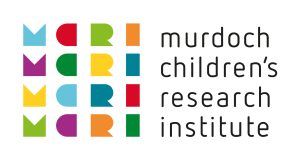
Posted: 14 December 2023
The team behind a Murdoch Children’s Research Institute (MCRI) led project has been celebrated for their work in newborn medicine, aiming to improve the health outcomes of preterm and sick babies.
Professor Lex Doyle and the Centre of Research Excellence in Newborn Medicine team have been recognised in the National Health and Medical Research Council’s (NHMRC) 10 of the Best publication that features some of the outstanding research funded under its grant program.
The annual publication is a tribute to the research teams who are addressing Australia’s greatest health challenges. The projects were selected from a review of the final reports submitted to the NHMRC. The publication highlights the research that was conducted, what was achieved and next steps.
The Centre of Research Excellence in Newborn Medicine team is working to generate new knowledge in the areas of newborn resuscitation, respiratory support, neuroimaging and developmental surveillance and translate the findings into policy and practice.
About 15 million babies are born prematurely each year. Babies that are born premature or sick present with a range of immediate and longer terms needs that can significantly impact their future.
Professor Doyle, who welcomed making the top 10 list, said while survival rates of those born extremely preterm have improved over the past 50 years, the research team would continue to follow these babies to understand what happens to their health after the first few decades.
The team is currently running clinical trials to reduce lung and brain damage in newborns, with the aim of improving respiratory and brain function in the long-term.
“Although we are good at keeping infants born extremely preterm alive, they still have ongoing breathing problems in the nursery that lead to lung damage, with long-term adverse consequences for their breathing ability and for their brain function in adulthood,” he said.
“Moreover, we need to understand better what it is about the brain that leads to higher rates of problems with thinking and movement in later life.”



